Best All-Season Tires: Year-Round Rollers
Top 6 Best All-Season Tires
Not all of us need to install a different set of rubber the instant Old Man Winter pokes his head around the corner. While parts of the continent grumble into their coffee about that day’s forecasted high (*raises hand*), wide swaths of the population can run the same tires year-round, particularly if it’s the family daily.
Especially if it’s the family daily, in fact. Your author argues at length, much to the annoyance of his family, that a car owner should emphatically not cheap out on tires. They’re the only things touching the road, after all. Ponying up a few stray bills for an off-brand whose rubber compound has the flex of an oak tree is a terrible idea. And don’t get me started on the propensity of certain people to buy second-hand tires full of frozen water and weeds.
Here are some good all-season tire suggestions, presented in alphabetical order, sourced from the crew at TireBuyer.com.
Table of Contents
-
Great brand, limited size choices
-
Plenty of sizes
-
Lots of sizes, positive reviews, not sexy
-
Excellent reviews, but pricey
-
Good looking but limited warranty
-
Big warranty for some but for all
1. BFGoodrich Advantage T/A Sport
Advantage T/A Sport tires, featuring H- or V- speed ratings, are what BFGoodrich calls Grand Touring All-Season tires. They’re marketed at the drivers of sedans, minivans, and small crossovers looking for all-season traction in dry, wet and light snow conditions. BFG promises some “fun” with this tire, but your author believes that word is best reserved for their high performance line.
The tire features an all-season tread compound molded into a symmetrical design, allowing easy cross rotation to resist irregular wear. The tire's continuous center rib creates constant contact with the road. Their 3D Active Sipe Technology provides an increased number of biting edges for improved wet and light snow traction.
Pros
- Great brand, reports of long tread life
Cons
- Only one size greater than an 18-inch diameter
2. Continental TrueContact Tour
According to the company, this tire is designed to provide year-round traction, even in light snow (we would put the emphasis on "light" for this and all tires on this list when it comes to the fluffy white stuff).
The TrueContact Tour features a tread compound containing temperature-activated functional polymers, a snazzy way of saying they’ve baked in components that will aid tread life and fuel efficiency. This compound is molded into a symmetric tread design that provides for the ability to rotate tires (you do rotate your car’s tires, right?) and help maximize tread life. The tread pattern is also said to be optimized in a bid to reduce noise. Those heavily siped tread blocks should provide the additional biting edges necessary to enhance traction in rough weather.
Pros
- Plenty of common sizes for the family car segment
Cons
- Massive ECOPLUS badges brands you a nerd
3. General Altimax RT43
The RT in this tire’s name doesn’t stand for "retweet", no matter what social media might try to tell you. Here, it refers to Road Touring, an activity for which this tire is uniquely designed. Altimax is General’s flagship line, so they’ve thrown the proverbial kitchen sink at this hoop in an effort to grab some of the everyday all-season market share.
According to the company, these tires feature a Twin Cushion Silica Tread Compound that places a high-density all-season top compound for year-round traction and long wear above a low-density foundation compound that absorbs road vibrations to promote a comfortable ride. Circumferential grooves and General's anti-slip sipe design technology increases the number of biting edges to enhance traction on slippery roads.
Pros
- Enormous selection of sizes, positive reviews from a healthy sample size
Cons
- Not exactly the sexiest tire on sale
4. Michelin Energy Saver A/S
The tire you see here is one of Michelin’s entrants into the green arena, with fuel economy being at the top of this tire’s mission list. Without too much details, the company is touting its EnergySaver construction and a "special type" of tread rubber as features that keep this tire cooler, thereby increasing fuel efficiency and technically reducing CO2 emissions.
Its continuous tread pattern (read: traditional three-rib design) allows for a good footprint and a shape that maximizes road contact. This latter attribute should be a plus for grip and acceleration, activities which benefit from greater amounts of rubber being pressed into the macadam.
Pros
- Excellent real-world reviews, frequent rebates
Cons
- Michelins are expensive
5. Pirelli PZero Nero All Season
Pirelli knows a thing or two about making things that go around. While most of the world associates the brand with high performance rubber thanks to their involvement in Formula 1, they also do a more than passable job of manufacturing all-season tires. In a fantastic blitz of marketing, they’ve foisted the mighty P-Zero name upon it for good measure.
All of the sizes are 18-inch diameter or greater, save for a single Mercedes spec 17-incher. It should surprise no one that most of the suggested applications for this Pirelli are expensive luxury machines, such as Audi and Jag and the aforementioned Merc. But, hey — if you can convince your better half to agree to a set of these for the Camry, more power to ya.
Pros
- Good looking tires sized for big-wheeled cars
Cons
- Warranty stretches only 45,000 miles
6. Toyo Versado Noir
Sounding for all the world like an after-dinner drink or fancy perfume, the Versado Noir is a touring all-season tire designed on the comfort end of the spectrum. Rigid outside tread blocks give a quieter ride, while those wide and straight grooves improve water drainage and reduce the chance of hydroplaning. There is a higher sipe density on the inside tread, another feature that helps when the weather turns foul.
The placement of those sipes is far from random. Without a clear shot to the edge of the tire, road noise is funneled away, meaning these tires will allow drivers to hear their passenger carping about the music selection. Whether this is a good thing or not is up to you.
Pros
- Big 75k-mile warranty (on H-rated hoops)
Cons
- V- and W-rated examples have a shorter warranty
FAQs
What are really good all-season tires?
According to the ratings given by some trusted and reputed websites, a couple of brands that produce good quality all-season tires under their corresponding series are:
• Michelin CrossClimate 2
(https://www.michelinman.com/auto/tires/michelin-crossclimate2)
All-season tires from this series come with a 60,000-mile treadwear and a 6-year standard limited warranty from the manufacturer, and therefore you can rest assured that you are in safe hands.
• Continental PureContact LS
(https://www.continental-tires.com/ca/en/b2c/car/tires/purecontact-ls.html)
The manufacturer offers a 60-day trial on these tires. Per piece also comes with around 70,000 miles limited warranty and 3-year roadside assistance (RSA) against flat tires.
• Yokohama Avid Ascend GT
(https://www.yokohamatire.com/tires/avid-ascend-gt)
The 3D sipes that these tires have offer improved grip which gives you a controlled drive even on wet roads. With a 30-day trial and 65,000 miles limited treadwear warranty, these all-season tires are quite pocket-friendly.
Apart from the above, there are many more vendors that manufacture tires for almost every use. You can conduct a quick online search to check them and go for the best ones according to your requirements.
What is better than all-season tires?
It depends on your region of residence.
While all-season tires perform normally in all types of climates, weather-specific tires outperform them as long as they are installed according to the atmosphere that the area sees the most in a year.
For instance, if you live in a cold region where there’s a lot of snowfall, you must prefer snow tires over all-season. Likewise, if your location mostly experiences extreme heat in a year, the summer tires would be your best bet.
In another case scenario, if you install snow tires in a hot area or vice versa, they are likely to wear off too quickly, and you will end up replacing them frequently, thus shedding more money from your pocket.
Coming to all-season tires, they are good for places where the weather continuously changes, and the corresponding temperature stays moderate. In such a climate, all-season tires won’t wear off fast.
Considering the above details, to answer your question, wherever possible, you should stick to weather-specific tires, and go for those meant for all seasons only if there is a frequent change in the climate throughout the year.
What is the best all-season tire for SUVs?
Many people still aren’t aware that all-season tires are different from all-terrain tires. While the former is suitable to work well under all types of weather conditions, the latter is useful if you are fond of off-roading and driving on various roads.
The purpose behind giving you the above heads-up is that you shouldn’t get confused while picking the correct tires for your SUV.
As for the brands and tire models, although you may have different choices, the items suggested below are worth considering:
• Michelin Defender LTX M/S Radial ( Buy here!)
These all-season tires are designed specifically for light trucks, crossovers, and SUVs. Each piece comes with a 70,000-mile treadwear and a 6-year standard limited warranty. The professionally crafted grooves offer a firm grip on the road both while driving and when applying brakes.
A few other noteworthy brands and their corresponding series that produce good quality all-season tires are:
• Continental CrossContact LX25
(https://www.continental-tires.com/ca/en/b2c/car/tires/crosscontact-lx25.html)
• Bridgestone Alenza A/S Ultra
(https://www.bridgestonetire.com/tire/alenza-as-ultra/225-65R17/#)
• Michelin CrossClimate 2
(https://www.michelinman.com/auto/tires/michelin-crossclimate2)
After checking the reviews of the above manufacturers, you can conduct a quick online search to find some other vendors that produce all-season tires that are equally good and pocket-friendly as well.
From time to time, TTAC will highlight automotive products we think may be of interest to our community. Plus, posts like this help to keep the lights on around here. Learn more about how this works.
(Editor’s note: This post is meant to both help you be an informed shopper for automotive products but also to pay for our ‘90s sedan shopping habits operating expenses. Some of you don’t find these posts fun, but they help pay for Junkyard Finds, Rare Rides, Piston Slaps, and whatever else. Thanks for reading.)
[Main photo credit: Volodymyr Plysiuk / ShutterStock.com. Product images provided by the manufacturer.]
More by Vivek Nayyar
Latest Car Reviews
Read moreLatest Product Reviews
Read moreRecent Comments
- Lou_BC Well, I'd be impressed if this was in a ZR2. LOL
- Lou_BC This is my shocked face 😲 Hope formatting doesn't fook this up LOL
- Lou_BC Junior? Would that be a Beta Romeo?
- Lou_BC Gotta fix that formatting problem. What a pile of bullsh!t. Are longer posts costing TTAC money? FOOK
- Lou_BC 1.Honda: 6,334,825 vehicles potentially affected2.Ford: 6,152,6143.Kia America: 3,110,4474.Chrysler: 2,732,3985.General Motors: 2,021,0336.Nissan North America: 1,804,4437.Mercedes-Benz USA: 478,1738.Volkswagen Group of America: 453,7639.BMW of North America: 340,24910.Daimler Trucks North America: 261,959




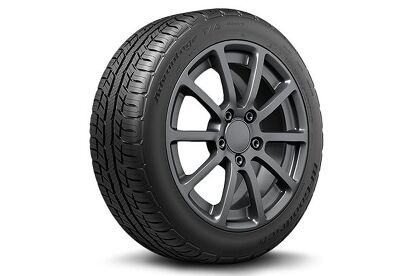

















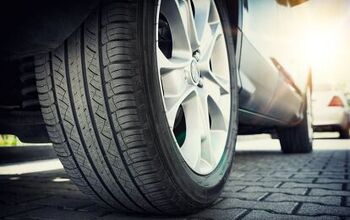
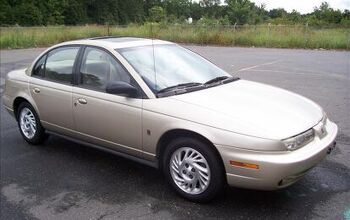
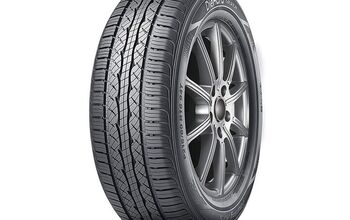








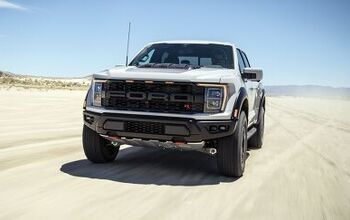





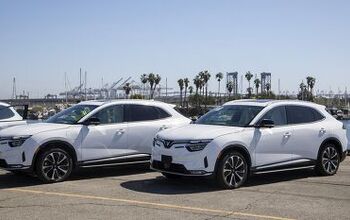
Comments
Join the conversation